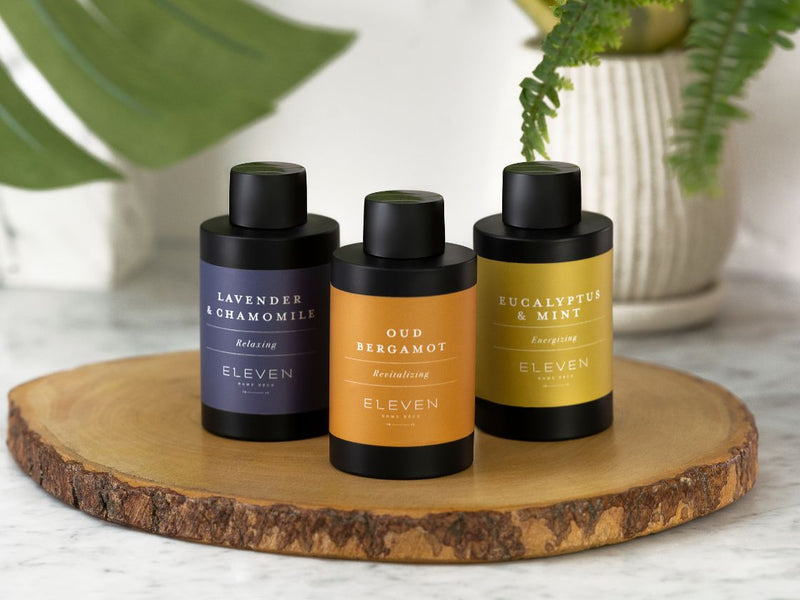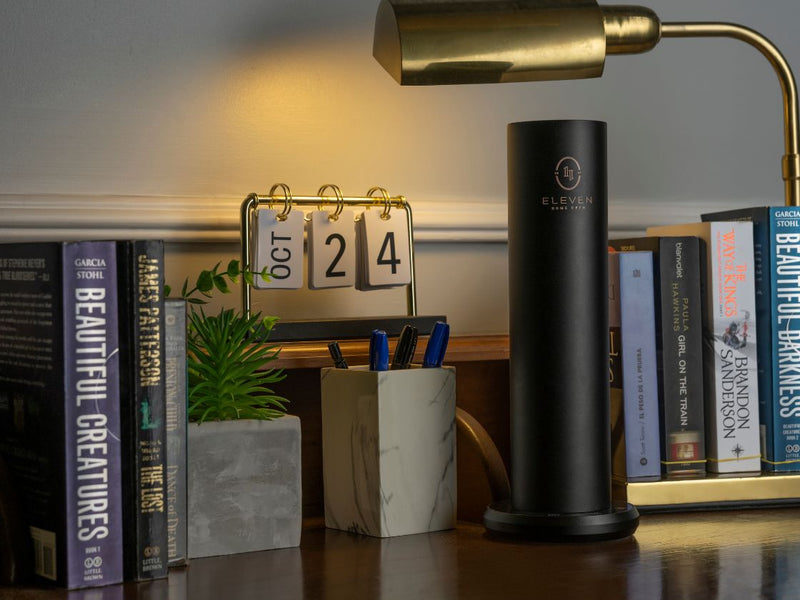Have you ever wondered what bergamot smells like? This fragrant and versatile citrus fruit is a popular ingredient in perfumes, cosmetics, and even tea. Bergamot's fresh and uplifting scent is both sweet and sour, with a slight floral undertone, making it a favorite among fragrance and tea enthusiasts worldwide.
How about we embark on an aromatic exploration of this unique and beloved citrus fruit together and learn everything there is to know?
Table of Contents
What Is Bergamot?
Bergamot is a citrus fruit that is cultivated predominantly in Calabria, Italy. Citrus bergamia is the scientific name for this hybrid of the lemon and bitter orange. Bergamot is most frequently utilized for its essential oil, which is cold pressed from the fruit's skin.
Due to its various qualities, bergamot essential oil has a wide range of applications, including the ability to promote relaxation, decrease tension and anxiety, and treat pain and inflammation. Moreover, it is utilized in aromatherapy and as a flavoring component in food and drinks.
Bergamot is also a popular ingredient in tea, particularly Earl Grey tea. The tea's distinct flavor comes from the bergamot oil that is added to black tea leaves during the production process. With its citrusy and slightly floral flavor this herb adds a unique twist to the tea, making it a favorite among tea drinkers worldwide.
What Does Bergamot Smell Like?
The aroma of bergamot is frequently characterized as zesty, invigorating, and fresh. It has a peculiar scent that is simultaneously sweet and sour, with a hint of flowery undertone. The fragrance is extremely similar to that of other citrus fruits, such as lemons and oranges, but with a distinctive twist.
Bergamot is a common component in fragrances and colognes because to its invigorating and refreshing aroma. It is frequently mixed with other citrus smells, like as lemon and grapefruit, as well as floral and spicy components, to produce sophisticated and complex aromas.

Aromatherapy Benefits of Bergamot
Bergamot has been widely used in aromatherapy for its therapeutic properties. The essential oil extracted from the fruit's peel is rich in compounds such as limonene, linalool, and linalyl acetate, which are known for their calming and relaxing effects on the mind and body.
One of the primary benefits of bergamot in aromatherapy is its ability to alleviate stress and anxiety. The oil's citrusy and uplifting aroma can help to elevate the mood and reduce feelings of tension and anxiety, promoting a sense of calm and relaxation. Diffusing bergamot oil in your home or workplace can help to create a peaceful and tranquil atmosphere that encourages relaxation and reduces stress levels.
Bergamot oil is also believed to have mood-enhancing properties, making it an excellent choice for those who struggle with low mood or depression. The oil's refreshing scent can help to boost energy levels and improve concentration, providing a natural and non-invasive way to improve overall well-being.
In addition to its stress-reducing and mood-enhancing properties, bergamot oil is also known for its skin-nourishing benefits. The oil's anti-inflammatory and antiseptic properties make it an excellent choice for those with skin concerns such as acne, eczema, or psoriasis. Bergamot oil can be added to carrier oils such as jojoba or sweet almond oil and applied topically to the affected area to soothe irritation and promote healing.
When using bergamot oil for aromatherapy purposes, it's essential to dilute the oil before applying it to the skin or diffusing it. Bergamot essential oil is highly concentrated and can cause skin irritation or other adverse reactions if used undiluted. Always follow the instructions provided by the manufacturer and consult a healthcare professional if you have any concerns about using essential oils.
Our Favorite Bergamot Scented Oil
We strongly suggest ELEVEN DECO Oud Bergamot Scented Oil if you wish to include bergamot's wonderful aroma into your everyday routine. This premium grade oil is manufactured from natural components and is meant to linger for hours, providing you with the fresh and invigorating aroma of bergamot.
The Oud Bergamot Scented Oil from Eleven is ideal for use in diffusers and for adding a wonderful scent to your skincare regimen. This rich and high-quality oil is certain to impress even the most discerning fragrance enthusiast.
Is Bergamot Safe to Use?
Bergamot is usually regarded as safe, but there are a few precautions you should observe. Bergamot essential oil is photosensitive, which means it can enhance the skin's sensitivity to sunlight, resulting in sunburns or skin damage. Because of this, it is crucial to avoid using bergamot oil topically before going outside, especially if you want to spend time in the sun.
Also, it is crucial to remember that bergamot oil might cause skin irritation in certain people, particularly those with sensitive skin. If you suffer any redness, itching, or irritation after taking bergamot oil, stop using it immediately and visit a doctor.
In addition, pregnant and nursing women should avoid using bergamot oil because its safety during pregnancy and breastfeeding has not been demonstrated.
Bergamot is a healthy and versatile component that may bring a pleasant aroma to your everyday routine. To avoid bad effects, it is vital to utilize this oil responsibly and with attention, as with any essential oil.
FAQ Section
What is Bergamot and Where Is It Obtained?
Bergamot is a citrus fruit that is cultivated largely in southern Italy, namely in the province of Calabria. The fruit has a distinctive flavor and perfume and resembles a little orange. Bergamot is a common ingredient in fragrances, aromatherapy, and tea and other drinks.
Is it Safe to Use Bergamot?
When properly diluted, the usage of bergamot essential oil is typically safe. However, it is crucial to remember that undiluted or excessive doses of bergamot oil might cause skin irritation or other undesirable responses.





